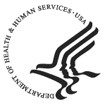
ACL NEWS
U.S. Administration for Community Living
Department of Health and Human Services Contact: ACL Press Office
(202) 357-3507
FOR IMMEDIATE RELEASE
A new set of materials to facilitate conversations with older people about brain health as we age is available from the U.S. Department of Health and Human Services.
“As we get older, many of us have a little more trouble recalling things quickly or reacting as fast as we used to,” said Dr. Richard J. Hodes, director of the National Institute on Aging at the National Institutes of Health. “Knowing what is normal and not normal, and—more importantly—what you can do to help keep your brain working its best can reduce fears and improve health.”
The four-part set of materials is written in plain language and explains what people can do to help keep their brains functioning best. Topics include: preventing falls to avoid head injury, refraining from excessively drinking alcohol, getting enough sleep, and managing diabetes and blood pressure.
The basics of Alzheimer’s disease as a primary threat to brain health with age and managing possible risk factors are also explained in the materials. Although no activity or medicine has yet been shown to prevent the disease or reduce risk, some of the healthy lifestyle and chronic disease management strategies presented are good for healthy aging and may prove, with further research, to directly protect against cognitive decline and Alzheimer’s disease.
The materials for use at senior centers and in other community settings, were designed and reviewed in 2014 by scientists and educators at three HHS agencies with expertise in health and aging: the Administration for Community Living (ACL); the Centers for Disease Control and Prevention; and NIH.
“Right now, we spend two thirds of our country’s health care budget on older adults with multiple chronic conditions. Helping people grow older in good health—including good brain health—benefits them, their families, and their communities,” said Ursula E. Bauer, Ph.D., M.P.H., director of CDC’s National Center for Chronic Disease Prevention and Health Promotion.
“Staff and volunteers at senior centers, area agencies on aging, health departments, local clinics, and community organizations of all kinds are in a wonderful position to debunk myths and share accurate information about this subject,” notes Kathy Greenlee, assistant secretary for aging and administrator of ACL. “Evidence-based resources like these can go a long way to make sure that people with concerns about brain health can get the information they need from the community caregivers they trust.”
The Brain Health Resource also provides connections to health screenings, exercise programs, chronic disease self-management education, fall prevention programs, and behavioral health programs funded by HHS.
The Brain Health Resource includes:
-
A PowerPoint presentation that teaches older adults and their caregivers how to reduce risks related to brain health. This slide set, recommended as a 60-minute session, including the presentation and discussion, covers:
-
Aging and health o Good health and the normal aging brain
-
Threats to brain health
-
Healthy aging for your body and brain
-
-
An accompanying Educator Guide that provides additional information for presenters to share with audiences.
-
A one-page handout for older adults and caregivers called “Brain Health as You Age: You Can Make a Difference!
-
A supplementary handout, Brain Health as You Age: Key Facts and Resources, that includes basic information and resources for the topics covered in the presentation.

